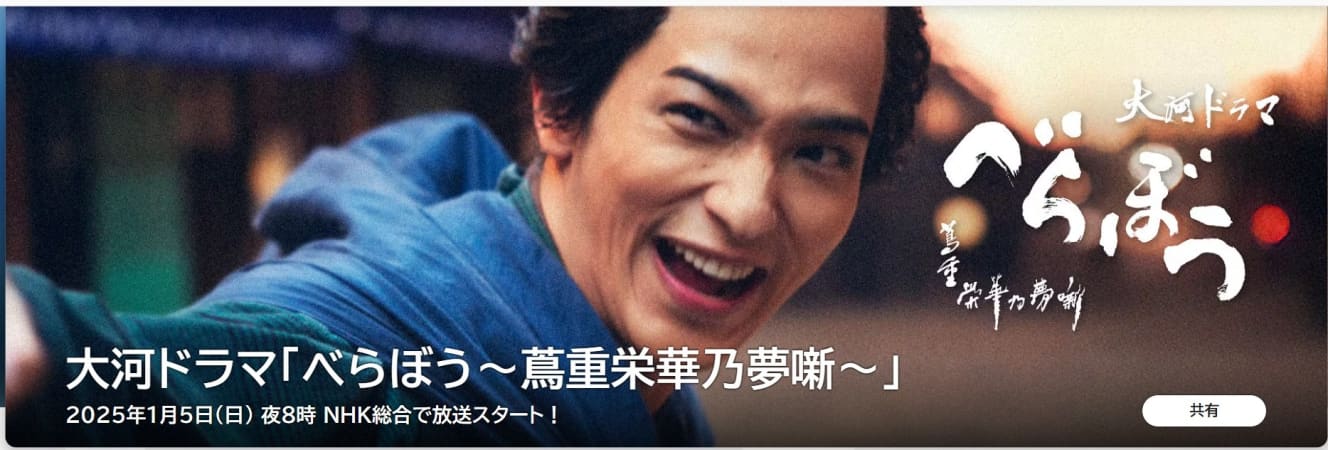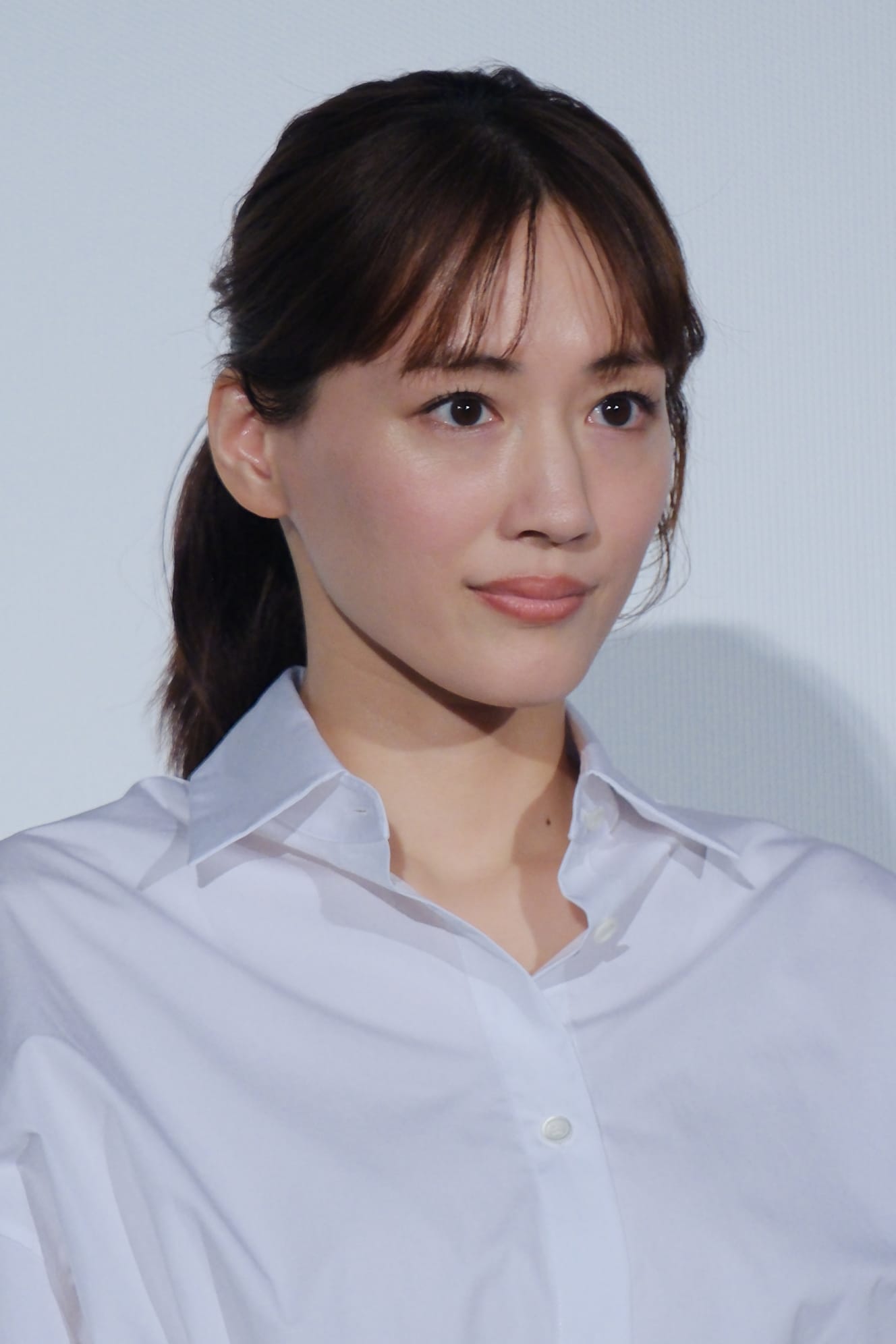Like a “morning drama”? Former TV TOKYO P Director Points Out the Reason Why “Betsubou” Had the Lowest Viewer Ratings for the First Viewing of a Historical Drama.
What is the “Morning Drama “ization of Taiga Drama?
This year’s Taiga Drama, “Belabo,” has been receiving the lowest first-run viewer ratings. According to Toshihiko Tabuchi, a former producer at TV Tokyo and professor at J. F. Oberlin University’s College of Art and Design, who has planned, produced, and cast many dramas, the most important reason for this is the lack of differentiation from “morning dramas. What exactly does it mean that “Taiga Drama” has become “Morning Drama”? What is the reason?

Causes of low ratings: ……
The historical drama “Belabo” has produced the lowest first-run ratings for a historical drama. There have been several articles on the Internet discussing the cause of the low viewer ratings, but none of them have yet reached the core of the issue. This is because they are all about the “content” of the drama.
In this article, I would like to explore the cause of low viewer ratings by looking into the “structural changes” taking place in the TV industry today, while also touching on the content of drama productions. During my previous career at a TV station, I produced many dramas. All of them were my own projects, not those of others. Of course, I also did the staffing and casting myself. Based on such long years of experience, I would like to list the following four reasons for low ratings or poor reception after viewing the first episode.
1_The title is not appealing.
The word “bérétabule” is not originally used in a good sense. It can mean “too bad,” or it can be derived from the word “fool,” which means to belittle someone. On the program’s official website, chief producer Hideki Fujinami explains that the reason for the title “bebo” was because of the original meaning of the word, which means “extreme” or “extraordinary. Without knowing the meaning of the word, however, it is unlikely to give a good impression on first viewing.
In the past, when I produced dramas, the title was something I struggled with until the very end. In some cases, I was still struggling with the title even after filming was finished and editing was in progress. The title is the “face” of the drama, so I had to be very careful.
In the long history of Taiga dramas, it must be difficult for those in charge to constantly face the hurdle of how to give the drama a unique character, but this time it is no wonder that the title was considered too eccentric. Frankly speaking, it is not a title that “makes you want to see it.
2_The script is too appealing to the viewers.
There were two major points that bothered me about the “screenplay too appealing to the viewer. Haruka Ayase, the narrator of the play, plays the role of Kurosuke Inari, and there is a scene in which she explains the distance using a smartphone.
Unintentionally, I exclaimed, “What? I exclaimed. Why is it necessary to show a smartphone here? I could only see it as a “flirtation” with the younger generation.
Viewers are sensitive to this kind of “unnecessary pandering. It is an easy pitfall for creators to fall into, thinking that “young people will like it” or “they will find it interesting,” but viewers are not that naive.
But viewers are not that simple. If they think so, then the creators are “self-indulgent.
The other point that bothered me was the “delivery” of the story. I felt as if I was watching a commercial suspense drama. Is it just me, or was too much emphasis placed on the “thrill and suspense” aspect of the story, and the flow of the story did not have the gravitas that one would expect from an epic drama?
3_I can’t show this to my children.
Regarding this, it can be pointed out that there are many “tragic scenes” and “scenes of women naked or men and women.
Scenes such as people being killed, images of dead bodies piled up, and women completely naked. I honestly wondered if it was necessary to go that far.
On the Internet, some people said, “That was a bold move” or “You did a good job of swinging away from it. I also appreciate the fact that they were prepared for it and expressed themselves well. I also think that the filmmakers were considerate to the performers, such as having an intimacy coordinator for sensitive sexual expressions.
However, such efforts will be ineffective if they are off the mark. In the first place, rather than the will and spirit of the creators, they should have considered whether or not the audience of a major drama is looking for such elements.
As I have always stated, the creation of visual works requires a sense of balance among the “three good things” of viewers, society, and the creator. Sunday night at 8:00 p.m. is the most likely time for families to be watching TV together.
One of my acquaintances said, “I was watching with my children, but I couldn’t help but change the channel. I wondered if the settings of “Yoshiwara” and “brothels” were really appropriate for that time slot. Wasn’t such consideration of the viewers also necessary for the TV crew?
4_The cast was not fully utilized.
Some online articles have questioned the acting ability of Ryusei Yokohama, but I commend him for doing a good job in this role, which is difficult to make him “stand out” as a character. The scene towards the end of the program when he confronts Ken Watanabe, who plays Iiji Tanuma, was quite a passionate performance. His future performance is promising.
However, it is highly possible that Mr. Yokohama, with his “belabored” tone and roughness, was not a character that fans would have liked to see. I would like to point out that I was not able to “get into” the characters easily.
In a drama series, if you don’t impress the audience with all the characters in the first episode, they will not be able to relate to them emotionally. If the right cast members are in the right places, the names of the actors and their roles fit perfectly and are memorable, but this was not the case with this drama series.
The reason, in my opinion, is that the main character, who is a bit of a bellicose character, and the character of Kurosuke Inari, played by Haruka Ayase, are too strong. The casting of Ms. Ayase was a complete waste of money. I guess they wanted to make her dressed as an oiran (courtesan) “appealing”, but unfortunately, she did not look attractive to me.

However, the root cause is ……
The above is a discussion of the reasons for the low ratings and unpopularity of the current Taiga Drama based on my experience as a drama producer, but we must not overlook the underlying cause hidden behind all these factors.
That is, “there is no longer any differentiation between Taiga Drama and Morning Drama.
Taiga dramas depict “unknown” aspects of historical figures that “everyone knows. In contrast, morning dramas depict “life-size” “growth stories” of “well-known” people who are not so well known. There was such a “distinction” between the two.
However, this year’s Taiga has obscured that distinction. As a result, viewers are at a loss as to how to view the drama.
When watching a drama, especially one as immersive as the Taiga Drama, viewers do not always analyze the content logically. The true essence of drama is to enjoy the drama without logic, while feeling close to the protagonist’s feelings and sometimes becoming the protagonist oneself.
Therefore, viewers are sensitive to the sense of discomfort that something is different from the usual. The feeling that “this is different from the usual Taiga” or “this is not what I am looking for” creates a sense of “alienation. If this happens, the audience will lose interest in the work.
Assumed “audience” ……
Now comes the important part of this discussion. Why is there no longer any differentiation between Taiga Drama and Morning Drama? Why is the “morning drama “ization of the Taiga Drama taking place? The reason lies in the “changing environment” surrounding the TV industry. And this is causing a “structural change” in TV stations.
The TV industry is now in the midst of a whirlpool of “distribution. The era in which it was sufficient to only broadcast terrestrial programs has come to an end. Monetization in the form of sales alone is no longer feasible. All terrestrial dramas must be distributed. As long as drama productions could be completed on terrestrial TV as in the past, it would have been possible to “separate” drama productions into “Taiga Drama” and “Morning Drama”.
However, with the advent of the age of distribution, viewers can now watch dramas regardless of “time” and “frame,” and the creator (NHK) is no longer conscious of the need to “separate” dramas as before. It would be more correct to say that “separation” is no longer possible.
The contents that I have pointed out in this paper, such as those that “appeal to younger viewers” and “seem too stimulating,” may not have been necessary in the original drama, but they are indispensable for the distribution of the drama. The creators and NHK are not interested in the terrestrial broadcasts. The creators and NHK do not envision a terrestrial audience, but rather a distribution audience. In this sense, this drama may be considered an extremely “strategic” content suitable for the age of distribution.
Finally, I would like to make a proposal based on this essay. I hope that the readers now have a better understanding of how the changes in the TV dramas stem from changes in the environment and structure of the TV industry. In the midst of such changes, the key to the survival of terrestrial drama productions in the current age of distribution is how to “bring out the color of the work.
This is not an easy task. Sometimes, failures are bound to occur. However, I hope that the creators on the frontlines will grit their teeth and overcome the obstacles. I would like to encourage them to do so. Television has a long history of accumulated know-how. I am sure that there will be a bright future ahead.
Text: Toshihiko Tabuchi PHOTO: Afro